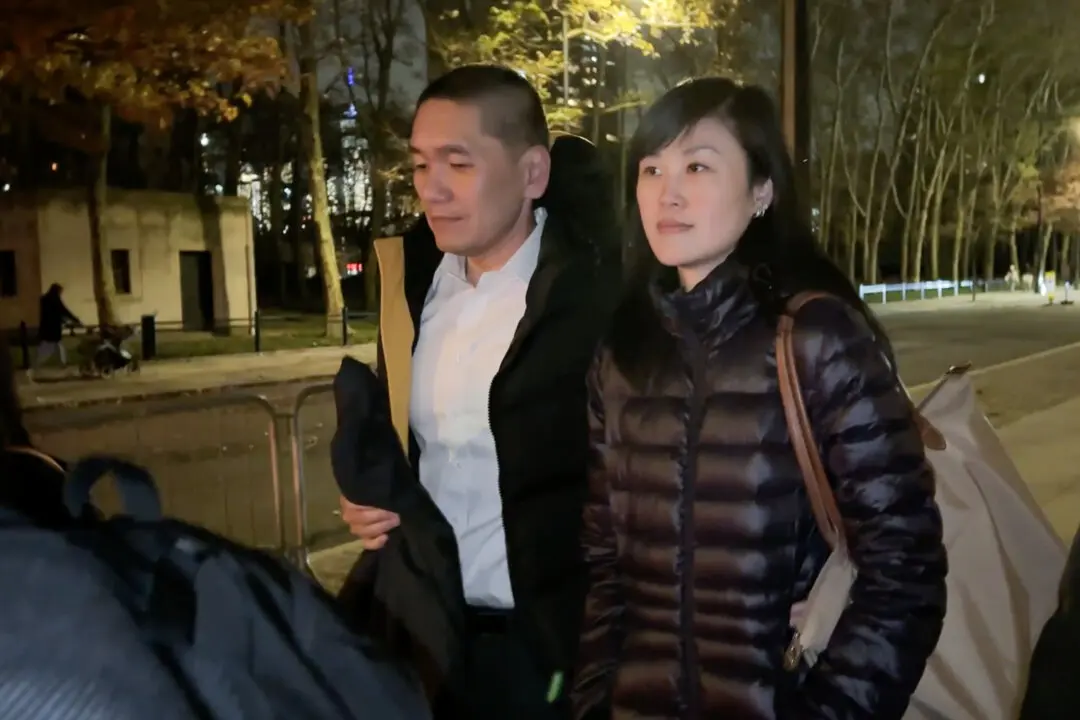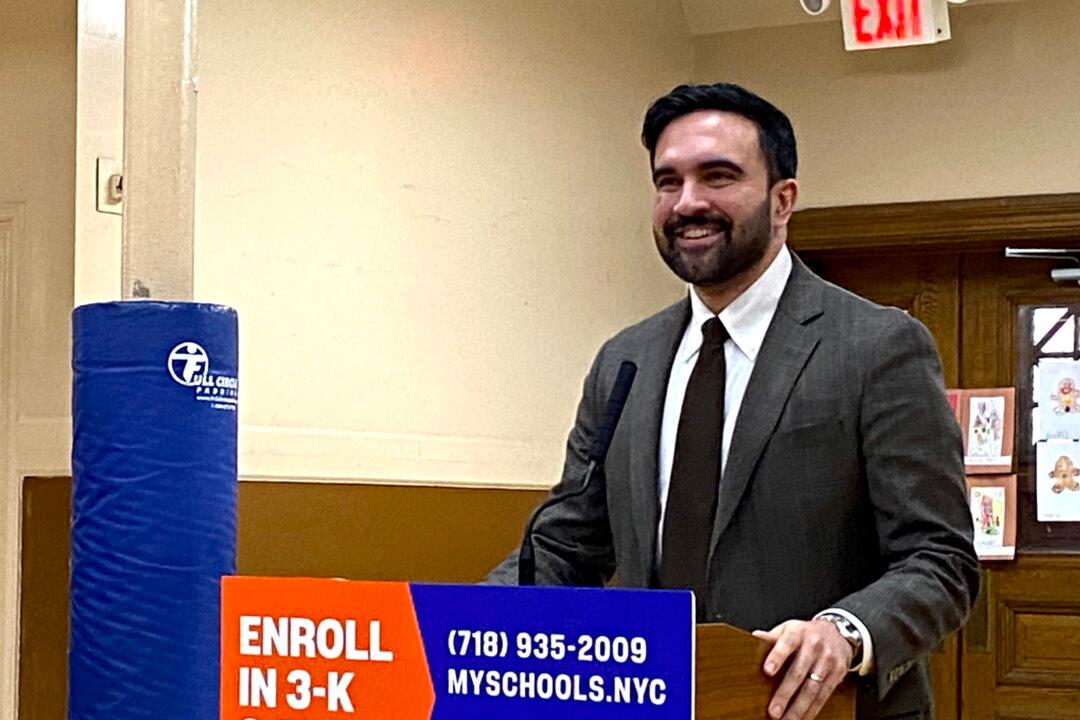Throughout the nation, countless people are watching as health care legislation is being worked through Congress. The final legislation that emerges will impact the majority of U.S. citizens through its effects on the health insurance industry. While recently traveling across the country by train, I met people from a wide variety of backgrounds who shared their stories, and I asked them about their experiences and opinions regarding health care.
While waiting in line to board the train in Washington, D.C., I was observing two women in front of me when one of them turned and said, “Could you help her? She’s a transplant survivor. We’re really lucky to have her.” That was how Kathryn McConnell and I met.
Speaking to me was an off-duty Amtrak employee who was carrying Ms. McConnell’s backpack. She was asking if I could take over. I helped with the backpack, talked with Ms. McConnell, and we got to know each other while on the train ride to Chicago. She had been visiting her daughter and newest grandchild outside Washington, D.C., and was now on her way to San Antonio by way of Chicago.
Ms. McConnell is a caring and chatty lady who makes friends easily. She is 57 and said her biggest accomplishment was “raising four happy, healthy, responsible, working citizens of this world. They are my gifts from God and my gifts to the world.” She is now a grandmother of five.
In 2004, while working as a part-time teacher and as a bartender, she began to feel tired all the time. A doctor found that a past bout with Hepatitis C had returned, and her liver was severely damaged. She needed a transplant.
At that time she was engaged to be married, and her fiance helped her through the transplant process. Hoping for a future with him helped her endure the drugs and their side effects. In November 2007 a liver became available, and she successfully underwent an organ transplant.
Sadly, her fiance died of a heart attack four days after bringing her home from the hospital. It was a difficult time in her life, and her eyes began to water as she recalled her fiance and how he had supported her through her ordeal.
“It’s ironic, because I had nothing, I was able to afford a transplant. If I had owned a home or anything, it would have been taken,” she said.
Ms. McConnell believes health care should be free and universal, and that no one should die for lack of basic care. “I am not a socialist—but I believe there are basic needs everyone should have provided for—water, food, shelter from the elements.”
She blames the high price of drugs on companies that “require such huge profits.” People “sicken and die or become a disabled drain on society” because they cannot afford the “simplest medicines,” said McConnell.
“I sometimes feel I don’t deserve this miracle. I am no one special.”
During a layover in Chicago, I had the opportunity to reconnect with a middle school classmate, Annie. She works as a pediatric nurse in a Chicago hospital, so I asked her what she thinks about health care.
“There are way more problems than people just not being covered,” she said based on her experience.
“The reality is that people are going to get care even if they don’t have insurance,” because publicly financed and nonprofit hospitals in Chicago will take care of them.
She believes there should be some type of public option, but people should also pay a certain amount, because of the “tendency to take it for granted.”
To her, the problem of how to pay for health care for Americans runs deeper because of factors based in the health care industry itself.
One example she mentioned is the cost of medical procedures done “to cover the bases,” to avoid liability, rather than to heal the patient.
According to Annie, failure to emphasize healing the patient starts higher up. She said she sees hospitals being built around the need for profits, rather than focusing on patient care. So, the administration invested in amenities, to attract patients. Patients may initially be attracted to such hospitals she said, but if the care is poor, they will transfer to hospitals that make patient care the top priority.
I was watching the Eastern Montana plains go by when I met Gerald Odegard. He is a retired home and boat builder who lives in South Dakota. Now he takes care of his wife and mother-in-law. Mr. Odegard lived much of his life in Northwest Washington State where he worked building model boats and prototypes for a manufacturer of runabouts, cruisers, deck boats, and motor yachts.
Years ago, his wife was in a car accident, afterward she developed problems in her joints. She went through twenty operations. While in the hospital, she contracted an infection that damaged her inner ear and ability to maintain balance. She now needs a walker. She rode in a special car on the train, one more accessible for her. The Odegards were on their way to visit their son and grandchildren in Seattle.
Because of his wife’s condition, insurance was essential for them. He said he doesn’t know what they would have done without the uninsured motorist insurance they had when his wife was hit. That covered initial fees because the other driver lacked car insurance.
Later, because of job loss, they lost health insurance. However, she became eligible for Medicare because of her disability. Medicare covered 80 percent of their insurance needs, but they also needed a 20 percent supplemental policy to cover the rest. Because of his wife’s condition, they were denied coverage. When she turned 65, they were finally able get full coverage through through provisions of the Medicare program.
Mr. Odegard said he is glad that it is likely Congress will prohibit the practice of denying coverage to those with pre-existing conditions.
“You have to control profits and control costs,” he said, referring to the health care industry. “What the government is for is to control excess. If they don’t, then somebody ends up with the short end of the stick.”
A Real Survivor
While waiting in line to board the train in Washington, D.C., I was observing two women in front of me when one of them turned and said, “Could you help her? She’s a transplant survivor. We’re really lucky to have her.” That was how Kathryn McConnell and I met.
Speaking to me was an off-duty Amtrak employee who was carrying Ms. McConnell’s backpack. She was asking if I could take over. I helped with the backpack, talked with Ms. McConnell, and we got to know each other while on the train ride to Chicago. She had been visiting her daughter and newest grandchild outside Washington, D.C., and was now on her way to San Antonio by way of Chicago.
Ms. McConnell is a caring and chatty lady who makes friends easily. She is 57 and said her biggest accomplishment was “raising four happy, healthy, responsible, working citizens of this world. They are my gifts from God and my gifts to the world.” She is now a grandmother of five.
In 2004, while working as a part-time teacher and as a bartender, she began to feel tired all the time. A doctor found that a past bout with Hepatitis C had returned, and her liver was severely damaged. She needed a transplant.
At that time she was engaged to be married, and her fiance helped her through the transplant process. Hoping for a future with him helped her endure the drugs and their side effects. In November 2007 a liver became available, and she successfully underwent an organ transplant.
Sadly, her fiance died of a heart attack four days after bringing her home from the hospital. It was a difficult time in her life, and her eyes began to water as she recalled her fiance and how he had supported her through her ordeal.
“It’s ironic, because I had nothing, I was able to afford a transplant. If I had owned a home or anything, it would have been taken,” she said.
Ms. McConnell believes health care should be free and universal, and that no one should die for lack of basic care. “I am not a socialist—but I believe there are basic needs everyone should have provided for—water, food, shelter from the elements.”
She blames the high price of drugs on companies that “require such huge profits.” People “sicken and die or become a disabled drain on society” because they cannot afford the “simplest medicines,” said McConnell.
“I sometimes feel I don’t deserve this miracle. I am no one special.”
Connecting in Chicago
During a layover in Chicago, I had the opportunity to reconnect with a middle school classmate, Annie. She works as a pediatric nurse in a Chicago hospital, so I asked her what she thinks about health care.
“There are way more problems than people just not being covered,” she said based on her experience.
“The reality is that people are going to get care even if they don’t have insurance,” because publicly financed and nonprofit hospitals in Chicago will take care of them.
She believes there should be some type of public option, but people should also pay a certain amount, because of the “tendency to take it for granted.”
To her, the problem of how to pay for health care for Americans runs deeper because of factors based in the health care industry itself.
One example she mentioned is the cost of medical procedures done “to cover the bases,” to avoid liability, rather than to heal the patient.
According to Annie, failure to emphasize healing the patient starts higher up. She said she sees hospitals being built around the need for profits, rather than focusing on patient care. So, the administration invested in amenities, to attract patients. Patients may initially be attracted to such hospitals she said, but if the care is poor, they will transfer to hospitals that make patient care the top priority.
On to the West
I was watching the Eastern Montana plains go by when I met Gerald Odegard. He is a retired home and boat builder who lives in South Dakota. Now he takes care of his wife and mother-in-law. Mr. Odegard lived much of his life in Northwest Washington State where he worked building model boats and prototypes for a manufacturer of runabouts, cruisers, deck boats, and motor yachts.
Years ago, his wife was in a car accident, afterward she developed problems in her joints. She went through twenty operations. While in the hospital, she contracted an infection that damaged her inner ear and ability to maintain balance. She now needs a walker. She rode in a special car on the train, one more accessible for her. The Odegards were on their way to visit their son and grandchildren in Seattle.
Because of his wife’s condition, insurance was essential for them. He said he doesn’t know what they would have done without the uninsured motorist insurance they had when his wife was hit. That covered initial fees because the other driver lacked car insurance.
Later, because of job loss, they lost health insurance. However, she became eligible for Medicare because of her disability. Medicare covered 80 percent of their insurance needs, but they also needed a 20 percent supplemental policy to cover the rest. Because of his wife’s condition, they were denied coverage. When she turned 65, they were finally able get full coverage through through provisions of the Medicare program.
Mr. Odegard said he is glad that it is likely Congress will prohibit the practice of denying coverage to those with pre-existing conditions.
“You have to control profits and control costs,” he said, referring to the health care industry. “What the government is for is to control excess. If they don’t, then somebody ends up with the short end of the stick.”





